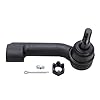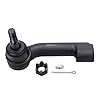Table of Contents
When considering a premium electric vehicle, many prospective buyers find themselves asking: are BMW electric cars reliable? This question is particularly relevant given BMW’s legacy of building sporty, luxurious gasoline-powered vehicles now transitioning to electric powertrains. The reliability of any vehicle, especially electric ones with their complex battery systems and sophisticated electronics, directly impacts long-term ownership costs, resale value, and overall satisfaction.
While BMW’s electric models like the i4, iX, and the now-discontinued i3 showcase the brand’s commitment to performance and luxury, their dependability varies based on model age, technological complexity, and real-world owner experiences.
This comprehensive guide will examine the reliability of BMW’s electric fleet through multiple lenses—including expert ratings, ownership cost data, battery longevity reports, and comparative analysis with competitors—to help you make an informed decision about whether a BMW EV deserves your trust and investment.
Understanding Electric Car Reliability
Reliability in traditional internal combustion engine vehicles typically focuses on mechanical components like engines, transmissions, and exhaust systems. For electric vehicles, the reliability paradigm shifts significantly toward different critical systems.
The EV Reliability Equation
Electric vehicle reliability encompasses several unique components that experience minimal wear compared to traditional engines but represent potential failure points:
- Battery Pack Longevity: The high-voltage battery is the heart of an EV, with degradation over time affecting range and performance. Quality batteries should retain at least 70-80% of their capacity after 8 years or 100,000 miles.
- Electric Motor Durability: EV motors have far fewer moving parts than internal combustion engines but can still experience bearing wear, cooling system issues, or electronic controller failures.
- Power Electronics: The inverter that converts DC battery power to AC for the motor and the onboard charger that converts AC to DC for charging represent complex systems that must operate reliably.
- Charging System Compatibility: Consistent ability to interface with various charging infrastructures without errors or reduced charging speeds.
- High-Voltage System Safety: Proper isolation and monitoring of high-voltage components to prevent safety issues.
Why BMW EV Reliability Matters Specifically
Understanding BMW’s approach to EV reliability is crucial for several reasons beyond basic transportation needs:
- Premium Investment Protection: With BMW’s electric models commanding prices from $60,000 to over $100,000, reliability directly impacts protecting this significant financial investment .
- Technology Complexity Trade-offs: BMW packs its EVs with advanced features like the iDrive infotainment system, sophisticated driver assistance packages, and complex climate control systems that represent additional potential failure points beyond the powertrain .
- Long-Term Cost of Ownership: While EVs generally require less maintenance than gasoline vehicles, premium-brand repairs can be exceptionally costly when issues do occur, making reliability particularly important for budget predictability .
- Resale Value Preservation: German luxury vehicles historically experience sharper depreciation than mass-market brands, making reliability crucial for maintaining value over time .
Historical Perspective: The BMW i3 as a Reliability Benchmark
The now-discontinued BMW i3 provides the most extensive historical data for evaluating BMW’s electric vehicle reliability, having been produced from 2014 through 2021. As BMW’s first mass-produced EV, the i3 offers valuable insights into the company’s electric vehicle engineering and durability.
Reliability Ratings and Owner Experiences
Multiple sources provide generally positive reliability assessments of the BMW i3:
- iSeeCars Rating: The 2021 BMW i3 received a reliability score of 7.2 out of 10, indicating above-average dependability for its segment .
- Edmunds Score: Edmunds awarded the i3 4 out of 5 stars, with owners praising its nimble chassis and minimal problems during ownership .
- Owner Satisfaction: On Edmunds, 46 owners gave the i3 an average rating of 4.6 stars out of 5, with many noting that the vehicle exceeded their expectations for reliability .
Battery Longevity and Major Component Reliability
The BMW i3 has demonstrated particularly strong performance in the most critical area of EV reliability—battery durability:
- Minimal Battery Issues: Despite concerns about electric vehicle batteries, the i3 has shown remarkable resilience with very few reported battery failures .
- Owner Feedback: On Reddit and other owner forums, i3 drivers consistently report that the high-voltage battery is “the least of their concerns,” with most experiencing minimal degradation even in higher-mileage examples .
- Recall History: The i3 had zero recalls over its final four production years, indicating strong quality control and design maturity .
Ownership Costs and Long-Term Value
While the i3 demonstrated strong mechanical reliability, ownership costs presented a mixed picture:
- Maintenance and Repair Costs: Edmunds estimated owners would spend $7,351 on maintenance and $6,938 on repairs over five years, with RepairPal estimating annual repair costs of approximately $1,173—higher than many non-luxury EVs .
- Depreciation: The i3 experienced significant depreciation, with values dropping approximately $10,000 by year five from its original $45,000 MSRP .
- Fuel Savings: The EPA estimated that compared to an average 2024 car, the 2021 i3 would save owners $5,250 in fuel costs over five years, partially offsetting higher maintenance expenses .
Table: BMW i3 Reliability and Ownership Cost Summary
| Category | Assessment | Impact on Owners |
|---|---|---|
| Battery Reliability | Excellent with minimal degradation reports | Long-term range preservation, low battery replacement concerns |
| Mechanical Systems | Above average with few major failure reports | Reduced unexpected repair needs |
| Routine Maintenance | Higher than average for EV segment | Increased scheduled maintenance costs |
| Repair Costs | High when repairs are needed | Significant expense when out-of-warranty issues occur |
| Depreciation | Significant value loss | Lower resale value but creating value in used market |
Current BMW Electric Models: Reliability Indicators
BMW’s current electric lineup includes the i4 Gran Coupe, iX SUV, and i5 sedan. While long-term reliability data is limited for these newer models, initial quality reports and expert assessments provide insights into their dependability.
BMW i4 Gran Coupe
The i4 represents BMW’s approach of electrifying existing platforms, in this case based on the 4 Series Gran Coupe:
- Powertrain Performance: Reviews consistently praise the i4’s powertrain for smooth and linear power delivery, with the single-motor eDrive40 model achieving 0-60 mph in 4.9 seconds in testing .
- Build Quality: The i4 benefits from sharing its foundation with a well-established gasoline model, potentially avoiding first-generation EV teething problems .
- Braking System: MotorTrend noted the i4’s “superior tuning” of the regenerative and mechanical braking system compared to typical EVs, with excellent stopping distances and pedal feel .
- Potential Concerns: The complex iDrive 8.5 infotainment system and various electronic features represent potential reliability concerns as these systems age .
BMW iX SUV
The iX represents BMW’s ground-up electric vehicle design with more ambitious technology:
- Initial Quality Impressions: Critics have praised the iX’s exceptional interior quality and material selection, suggesting good initial build quality .
- Advanced Features: The iX incorporates sophisticated systems like a 360-degree camera system, radar cruise control, and innovative interior materials that could present long-term reliability challenges .
- Drivetrain Refinement: The iX’s powertrain has been described as “sublime” for everyday driving with minimal noise and vibration, indicating good initial mechanical integrity .
- Weight Considerations: At over 2,500 kilograms (5,500 pounds), the iX’s substantial weight places significant stress on suspension components, brakes, and tires that could affect long-term durability .
BMW i5 Sedan
The electric version of BMW’s iconic 5 Series represents the company’s latest evolution in EV technology:
- Proven Platform: Like the i4, the i5 shares its basic architecture with a well-established gasoline model, potentially benefiting from refined manufacturing processes and proven components .
- Warranty Coverage: BMW provides competitive warranty coverage for the i5, including 4 years/50,000 miles basic coverage and 8 years/100,000 miles for EV components .
- Charging System: The i5 includes sophisticated thermal management and battery pre-conditioning systems designed to maintain consistent charging performance and battery health .
Comparative Analysis: BMW vs. Other EV Manufacturers
Understanding BMW’s electric vehicle reliability requires context from the broader EV market:
BMW vs. Tesla
- Tesla generally achieves longer driving ranges and superior charging infrastructure integration.
- BMW traditionally offers superior interior materials and build quality, though this comes at a higher price point .
- Both brands incorporate sophisticated technology, but Tesla’s more integrated approach may result in fewer electronic glitches.
BMW vs. Traditional Luxury Competitors
- Mercedes-Benz EQ models have faced various electronic issues in early models, potentially giving BMW an edge in initial quality.
- Audi e-tron models have demonstrated strong build quality but sometimes lag in efficiency and range.
- BMW’s conservative approach of electrifying existing platforms may provide reliability advantages over ground-up EV designs from competitors.
BMW vs. Mainstream EVs
- Mainstream EVs like the Nissan Leaf and Chevrolet Bolt typically have lower maintenance costs and simpler systems.
- BMW offers superior performance, luxury features, and driving dynamics that justify their premium for many buyers.
- The reliability gap between luxury and mainstream EVs has narrowed, with complex luxury features representing the primary differentiator in potential issues.
Factors Influencing BMW Electric Car Reliability
Several key factors determine the real-world reliability of BMW’s electric vehicles:
Battery Technology and Management
- Thermal Management Systems: BMW employs sophisticated liquid cooling systems for its battery packs, crucial for maintaining optimal temperature and preventing degradation.
- Charging Protocols: Intelligent charging control systems help preserve battery health by managing charging speeds and maximum charge levels based on usage patterns.
- Battery Chemistry: BMW has evolved its battery cell chemistry across generations, with newer models offering improved energy density and potentially longer lifespan.
Manufacturing Quality and Standards
- Established Production Facilities: Unlike some EV startups, BMW manufactures its electric vehicles in established factories with refined quality control processes.
- Supplier Relationships: Long-standing relationships with tier-one suppliers for electronic components and electrical systems.
- German Engineering Standards: Traditional emphasis on structural integrity, precision tolerances, and durability in vehicle systems.
Software and Electronics Complexity
- iDrive System Evolution: BMW’s increasingly complex infotainment and vehicle control systems represent potential reliability concerns as software complexity grows.
- Driver Assistance Systems: Advanced features like the Driving Assistance Pro package add considerable electronic complexity that must function reliably .
- Over-the-Air Updates: While enabling feature improvements, these introduce potential new failure modes if not properly validated.
Owner Experience and Long-Term Cost Considerations
Beyond basic reliability metrics, the actual ownership experience and long-term costs significantly impact how reliability is perceived:
Maintenance Requirements and Costs
- Reduced Routine Maintenance: Like all EVs, BMW electric models eliminate oil changes, spark plug replacements, and many traditional service items.
- Brake System Longevity: Regenerative braking reduces wear on friction brakes, potentially extending service intervals significantly.
- HVAC System Demands: Electric climate control systems work harder in extreme temperatures, potentially creating higher long-term service needs.
- Specialized Service Requirements: BMW dealerships require specific training and equipment for high-voltage systems, potentially limiting independent repair options and increasing service costs.
Warranty Coverage and Support
- Comprehensive EV Warranties: BMW provides strong warranty protection specifically for electric vehicle components, typically 8 years/100,000 miles for high-voltage batteries .
- Roadside Assistance: BMW includes specialized EV roadside assistance that can address charging issues or battery-related problems.
- Dealer Network Readiness: Not all BMW dealers have equivalent EV service capabilities, potentially affecting service quality in some locations.
Repair Accessibility and Costs
- Diagnostic Complexity: Sophisticated electronic systems require specialized diagnostic equipment and training, increasing repair costs when issues occur.
- Parts Availability: As newer models, some components may have limited availability outside dealer networks, potentially extending repair times.
- High-Voltage System Repairs: Any work involving high-voltage components requires specialized safety procedures and equipment, adding to repair costs.
The Future of BMW Electric Vehicle Reliability
BMW’s evolving electric vehicle strategy provides insights into future reliability trends:
Neue Klasse Platform
BMW has announced its next-generation Neue Klasse electric vehicle platform, which promises significant advances in battery technology, motor efficiency, and manufacturing integration. This consolidated approach could improve reliability through:
- Standardized Components: Fewer unique parts across models potentially increasing quality control and simplifying repairs.
- Advanced Battery Technology: New battery formats and chemistries promising improved energy density and longevity.
- Integrated Software Architecture: More cohesive electronic systems potentially reducing software-related issues.
Lessons from Early Models
BMW appears to be applying lessons from its early electric vehicles:
- Simplified Model Strategies: Moving from unique models like the i3 to electrified versions of mainstream models may improve manufacturing consistency.
- Battery Technology Evolution: Progressive improvements in battery management systems and thermal regulation based on field data from earlier models.
- Charging System Refinements: Enhanced compatibility with public charging infrastructure through software updates and hardware revisions.
Making an Informed Decision: Are BMW Electric Cars Right for You?
Determining whether a BMW electric car represents a reliable choice depends significantly on your priorities, budget, and expectations:
When a BMW EV Makes Sense
- Driving Enthusiasm: If you prioritize engaging driving dynamics and refined powertrains, BMW’s electric models deliver exceptional performance .
- Luxury and Comfort: For buyers seeking premium interiors, advanced features, and sophisticated styling, BMW maintains its traditional strengths .
- Long-Term Warranty Confidence: With comprehensive 8-year/100,000-mile battery coverage, concerns about the most expensive component may be mitigated .
- Brand Loyalty: Existing BMW owners seeking to transition to electric power will find familiar design philosophy and dealership experience.
Potential Concerns to Consider
- Cost-Conscious Ownership: Budget-focused buyers might find maintenance and repair costs higher than mainstream EV brands .
- Technology Simplicity: Those preferring minimalist technology interfaces may find BMW’s complex infotainment and control systems overwhelming or potentially problematic.
- Long-Term Unknowns: As with any evolving technology, the very latest models incorporate unproven systems that lack long-term reliability data.
- Charging Infrastructure: While improving, BMW’s public charging integration doesn’t yet match Tesla’s seamless Supercharger network.
Conclusion: Balancing Premium Performance and Electric Reliability
So, are BMW electric cars reliable? The evidence suggests that BMW has built a solid foundation of electric vehicle reliability, particularly in critical powertrain components. The exceptional battery longevity demonstrated by the i3, the refined powertrains in current models, and BMW’s comprehensive warranty coverage all point toward electric vehicles that can deliver dependable service. However, traditional BMW traits—complex luxury features, sophisticated electronics, and higher maintenance costs—continue to influence the ownership experience in the electric era.
For buyers considering a BMW electric vehicle, the most prudent approach involves recognizing that you’re investing in a premium product with both exceptional engineering and the complexity that entails. While the core electric powertrains appear robust, the extensive electronic systems and luxury features represent potential reliability concerns that don’t necessarily apply to more mainstream EVs. Ultimately, BMW electric cars deliver their promised combination of performance, luxury, and innovation with generally good reliability, provided owners maintain realistic expectations about the costs and complexities of premium electric vehicle ownership. As BMW continues to evolve its electric vehicle technology with lessons from earlier models, the outlook for future reliability appears promising for this established brand transitioning to an electric future.




























































